Feed-additive solutions to viral aquatic diseases are close at hand, say ViAqua Therapeutics and TransAlgae
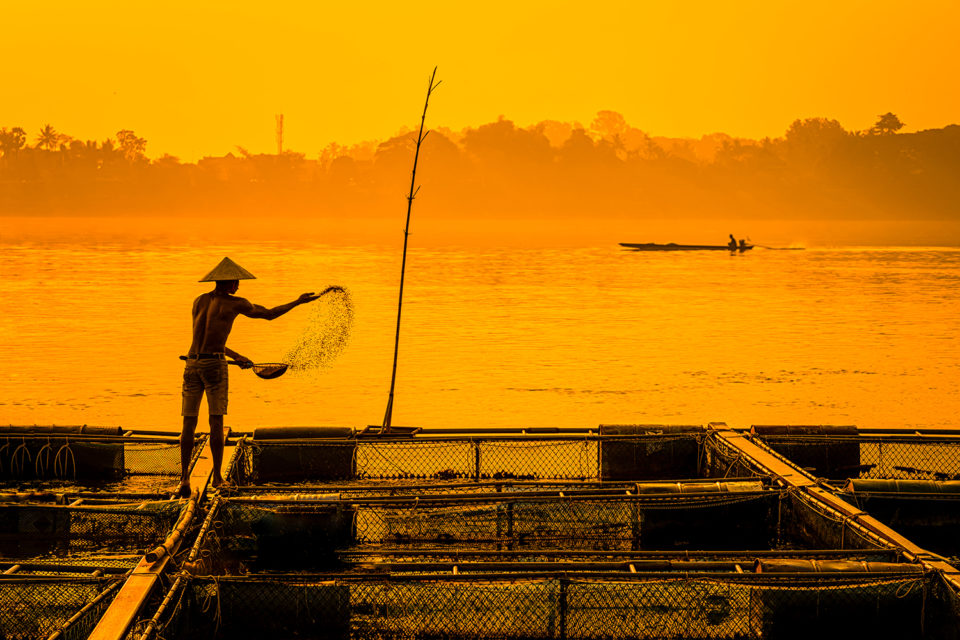
In recent months the international seafood marketplace issued a heartfelt plea to the shrimp industry: Create a coordinated plan to control shrimp disease and reduce the havoc disease has wreaked on the supply chain over the past 20 years.
Two Israeli companies are hoping they will have a solution to the problem in the next couple of years.
ViAqua Therapeutics, established in 2014, is developing a feed supplement containing encapsulated RNA that it says can improve shrimp’s resistance to White Spot Syndrome Virus (WSSV) and other viral diseases that have cost the industry billions of dollars over the years. The orally administered, particle-based platform is produced using a bacterial fermentation process and it’s free of hormones, antibiotics and genetically modified organisms. But it is not a vaccine, cautions Dganit Vered, who oversees business development for the company.
“We don’t have 100 percent efficacy but farmers using our product in their ponds will be able to keep [a significant percentage] of their shrimp alive in the case of a viral attack,” Vered told the Advocate.
https://www.aquaculturealliance.org/advocate/marketplace-to-industry-governments-solve-shrimp-diseases/
The company is collaborating with Skretting, the Norwegian feed manufacturer, and conducted testing in a laboratory in Belgium.
“The tests Skretting ran using WSSV showed we were able to generate much better protection than the control,” she said. “But we know our platform can deliver solutions for diseases other than WSSV, too.”
The problem with viral disease in shrimp, she added, is that while the broodstock might be clean before they arrive in a pond, if there are viral diseases present in the pond they can have a devastating effect. “The beauty of our solution is that we incorporate our feed ingredient into the feed in small quantities and it enhances the health of the shrimp.”
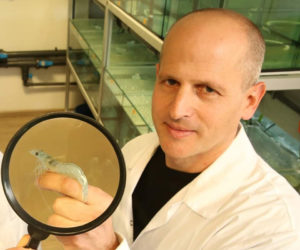
Sophie Noonan, Skretting’s global communications manager, confirmed the company is collaborating closely with ViAqua Therapeutics and is looking into co-development opportunities.
“ViAqua is a very promising company with very competent people, which is why Nutreco invested in ViAqua in 2018,” she said. “But it’s a bit too early to talk in more detail about the development in progress.”
Vered said ViAqua is negotiating with contract manufacturers, will run commercial trials soon with the hopes to launch its product within two to three years.
Another Israeli company, TransAlgae, is hoping its solution to viral disease in aquaculture will be a dramatic game changer for the industry.
“We have identified different protein and dsRNA sequences that can trigger an immune reaction in an animal’s body, and we’re transcribing those sequences into an algae genome so the algae expresses that sequence,” said Eyal Ronen, VP, business development.
“The beauty of this delivery system is the bioencapsulation. The algae safely transfer the molecule of interest through the digestion system without any degradation or chemical changes so it reaches the absorption area to enter the blood and trigger the appearance of antibodies.”
TransAlgae has shifted production of its algae from photoreactors to bioreactors, or fermentation, and has draft agreements with companies in the animal health and crop protection sectors.
Dismissing injectable vaccines that are time-consuming, labor-intensive and stressful for fish, and introducing something that incorporates the vaccines through the feeding system will be a game-changer for the industry.
“With one company we’re expected to develop a vaccine for a virus in salmon, and for another we’re working on a virus in shrimp,” he said. TransAlgae worked with Temasek Polytechnic in Singapore two years ago on trials to test the protection of sea bass from iridovirus.
“We achieved a superior percentage of survival rate and no mortality than the traditional injectable vaccine treatment for this virus,” he said. “We’re currently developing an oral vaccine for several targets in the aquaculture sector, and we’re looking for collaborators to work with in the treatment of WSSV and YHV (yellow head virus) in shrimp.”
Ronen said TransAlgae is two-to-three years away from having a product ready for the market. Early phases of development are complete but the company still needs to do trials and fulfill regulators’ requirements.
“We’re a tiny company aiming to bring the product to market,” he said. “We are currently in a fundraising round led by KPMG and hoping to raise $27 to $28 million to complete the development in-house and build a formulation laboratory and a fermentation testing facility.”
Aquaculture farmers would potentially purchase the oral vaccine from their feed suppliers or veterinary companies and incorporate the algae into the feeding programs.
If it all works out this could be what the industry has needed for years, he said: “Dismissing injectable vaccines that are time-consuming, labor-intensive and stressful for fish, and introducing something that incorporates the vaccines through the feeding system will be a game-changer for the industry. There are multiple advantages to having an oral vaccine and now that we’re in the development stage, we’re getting a lot of attention from the aquaculture industry.”
Follow the Advocate on Twitter @GAA_Advocate
Now that you've reached the end of the article ...
… please consider supporting GSA’s mission to advance responsible seafood practices through education, advocacy and third-party assurances. The Advocate aims to document the evolution of responsible seafood practices and share the expansive knowledge of our vast network of contributors.
By becoming a Global Seafood Alliance member, you’re ensuring that all of the pre-competitive work we do through member benefits, resources and events can continue. Individual membership costs just $50 a year.
Not a GSA member? Join us.
Author
-

Lauren Kramer
Vancouver-based correspondent Lauren Kramer has written about the seafood industry for the past 15 years.
Tagged With
Related Posts
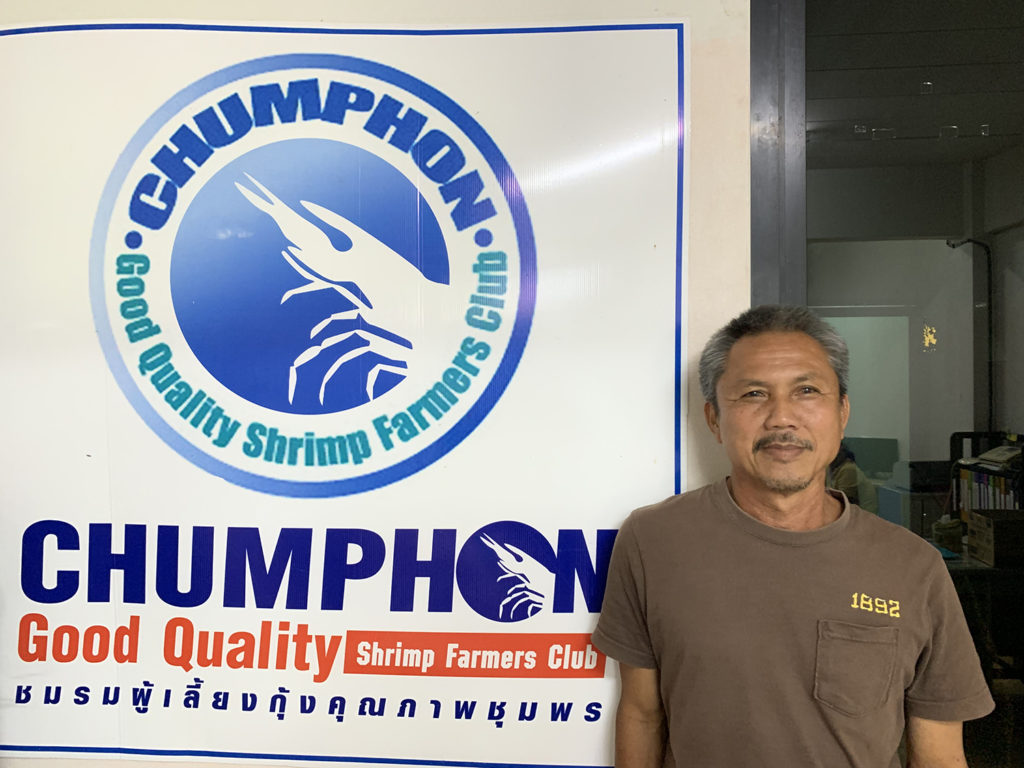
Responsibility
Early-warning pilot project in Thailand aims to reduce risk of shrimp disease
A group of NGOs and businesses is developing tools and interfaces aimed at helping farmers reduce disease outbreaks both individually and at the area level.
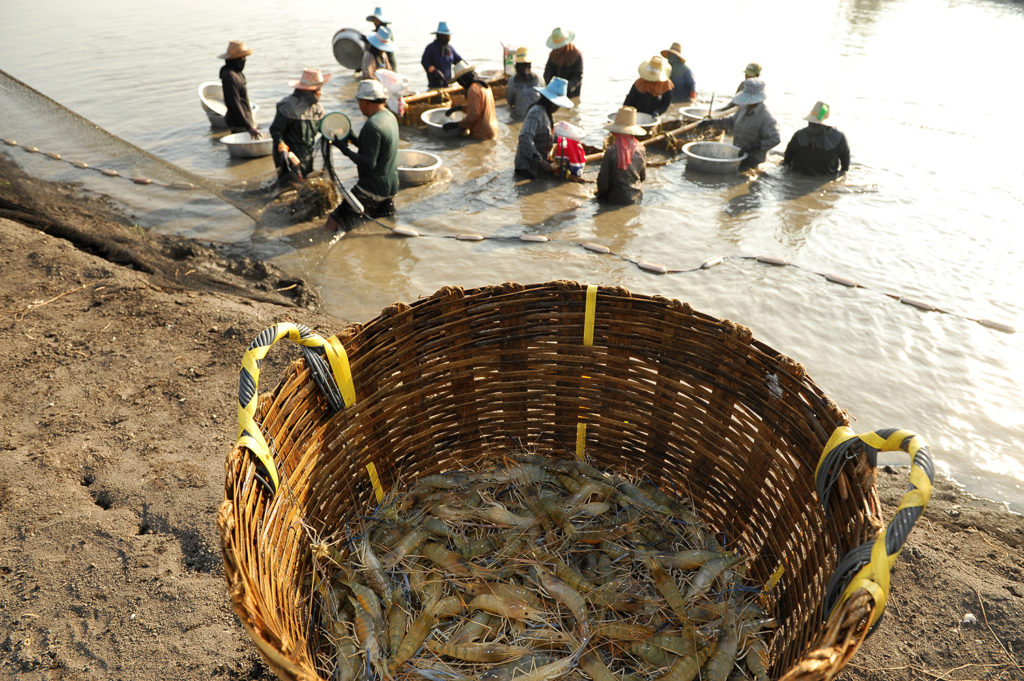
Health & Welfare
Marketplace to industry, governments: Solve shrimp diseases
The international seafood marketplace is pleading with the farmed shrimp supply chain to control diseases that wreak havoc on the global supply chain.
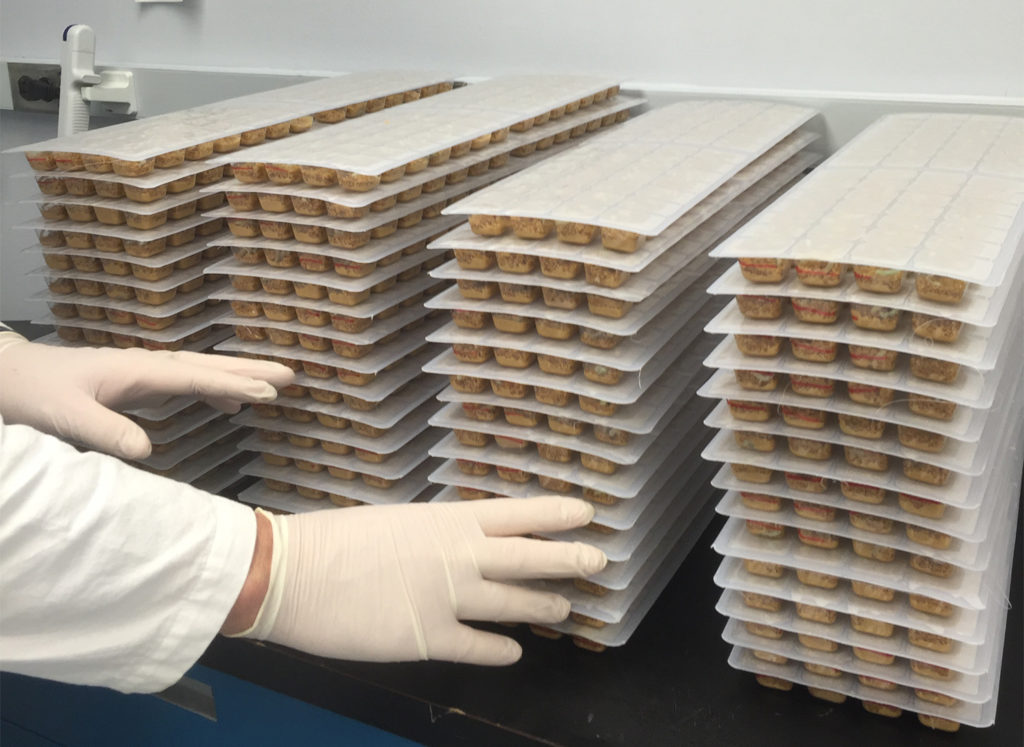
Innovation & Investment
Global Aquaculture Innovation Award finalist: VakSea
An orally administered vaccine product holds great promise for aquaculture, and Maryland-based startup VakSea is on the cusp of providing one. Sensing a major opportunity, the company’s focus has pivoted to shrimp.
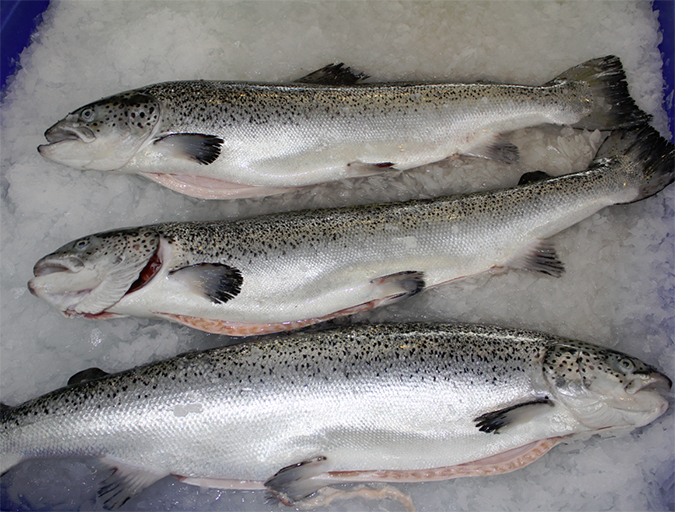
Health & Welfare
Aquaculture viruses: An Atlantic salmon case study
Viruses often are the most potentially damaging pathogens in nature, affecting both wild stocks and farmed animals. Due to an Infectious Haematopoietic Necrosis (IHN) viral outbreak that occurred in Atlantic salmon in British Columbia, Canada some years ago, a vaccine for IHN was developed against this serious threat.

